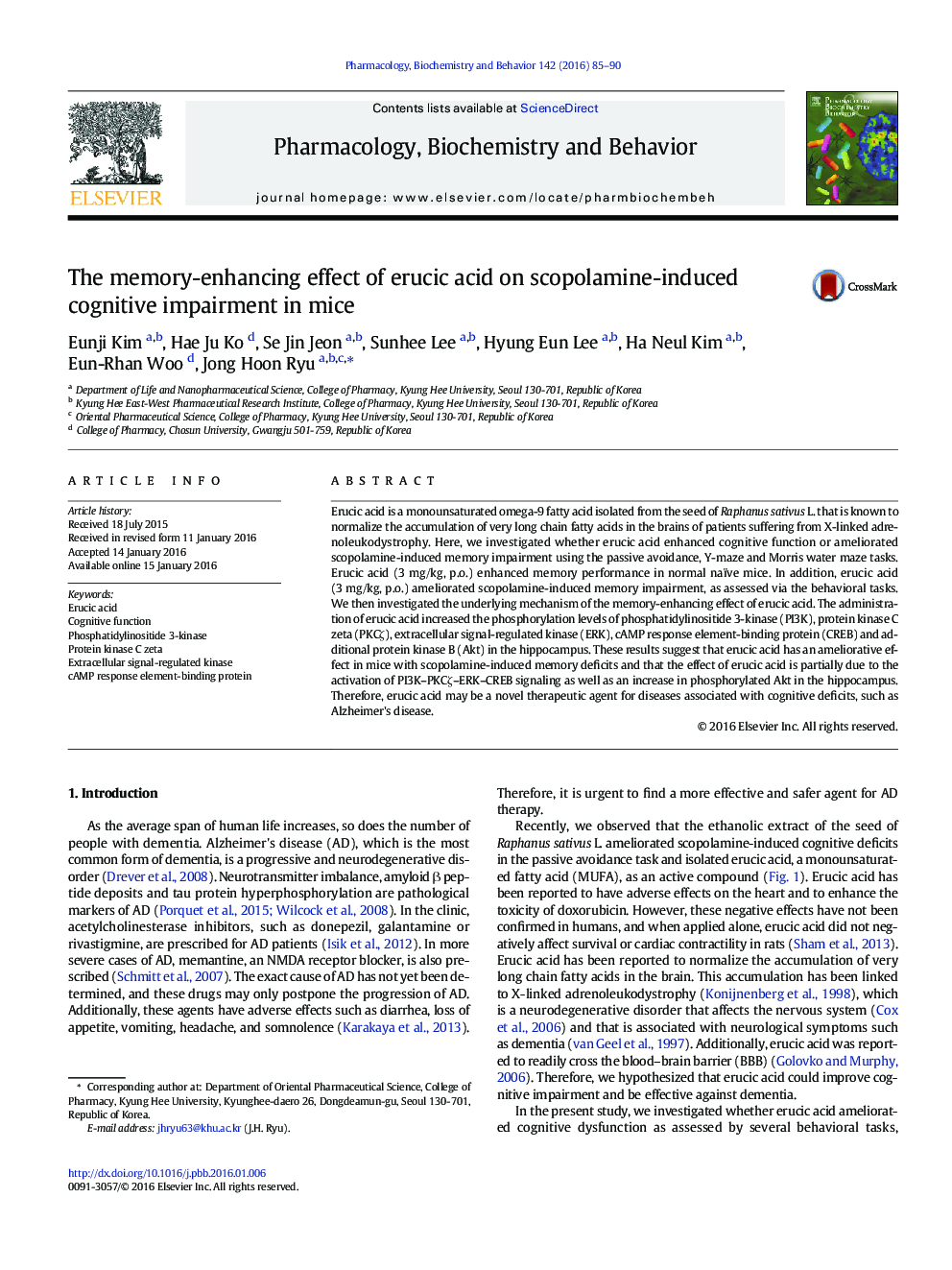| Article ID | Journal | Published Year | Pages | File Type |
|---|---|---|---|---|
| 2012638 | Pharmacology Biochemistry and Behavior | 2016 | 6 Pages |
•Erucic acid enhanced cognitive performance of mice with scopolamine-induced deficits.•Erucic acid activated the signaling pathway of PI3K–Akt–PKCζ–ERK–CREB.•Erucic acid would be a therapeutic potential for the treatment of cognitive impairment such as AD.
Erucic acid is a monounsaturated omega-9 fatty acid isolated from the seed of Raphanus sativus L. that is known to normalize the accumulation of very long chain fatty acids in the brains of patients suffering from X-linked adrenoleukodystrophy. Here, we investigated whether erucic acid enhanced cognitive function or ameliorated scopolamine-induced memory impairment using the passive avoidance, Y-maze and Morris water maze tasks. Erucic acid (3 mg/kg, p.o.) enhanced memory performance in normal naïve mice. In addition, erucic acid (3 mg/kg, p.o.) ameliorated scopolamine-induced memory impairment, as assessed via the behavioral tasks. We then investigated the underlying mechanism of the memory-enhancing effect of erucic acid. The administration of erucic acid increased the phosphorylation levels of phosphatidylinositide 3-kinase (PI3K), protein kinase C zeta (PKCζ), extracellular signal-regulated kinase (ERK), cAMP response element-binding protein (CREB) and additional protein kinase B (Akt) in the hippocampus. These results suggest that erucic acid has an ameliorative effect in mice with scopolamine-induced memory deficits and that the effect of erucic acid is partially due to the activation of PI3K–PKCζ–ERK–CREB signaling as well as an increase in phosphorylated Akt in the hippocampus. Therefore, erucic acid may be a novel therapeutic agent for diseases associated with cognitive deficits, such as Alzheimer's disease.
